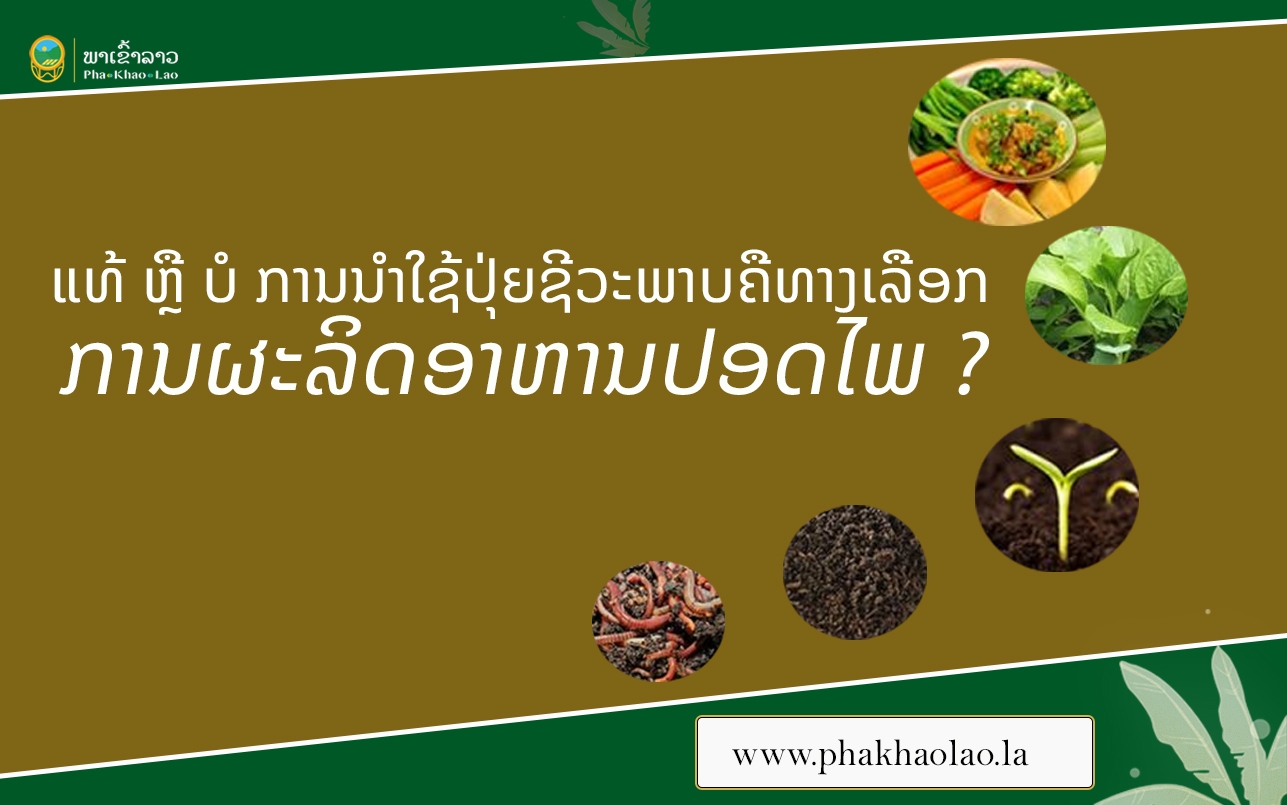March 22, 2024

Many of you may have heard about the use of biological fertilizers to help in this matter. Then the reason for choosing to use it. The article may be useful to you. Of course, as we know very well, farming in our country is considered to be another profession that many people take as their main occupation, especially farming, which the main factor that gives good yield comes from the the richness of the soil.
Of course, in order to get rich plants, the use of fertilizers (chemicals) can be considered as another method used by farmers. It causes the soil to deteriorate, the living things and the ecosystem are affected, the biological diversity is less and the plants have toxic residues. When this happens, most people turn to using fertilizers that come from nature back to nature, which is called “biofertilizers”. The use of biological fertilizers is another option that is gaining popularity now.
Does the use of biological fertilizers really help food safety? Bio-fertilizers can help reduce the contamination of disease. When bio-fertilizers are used on plants, there is no contamination of food-borne microorganisms that affect consumers. There are also nutrients needed by plants and help to adjust the structure of the soil Therefore, the production of bio-fertilizers and the use of rice in the field of agriculture can be considered as another good option for farmers, besides not having toxic residues in the plants, they can also save capital and also promote organic farming, the health of producers, consumers, safety and environmental friendliness.
From the study and research on the use of biological fertilizers, we have seen the importance and many benefits. One of the most useful and environmentally friendly biological fertilizers is the biological fertilizer from moonshine.
The advantages of using sorghum fertilizer
Only popular in Laos, but neighboring countries are also popular, especially Vietnam, China, Thailand, Cambodia and other countries are also popular and researching the production of this type of fertilizer.
On the same occasion, Mr. Maivanh Thepmanivong, an organic vegetable farming operator, said that: he quickly realized the importance of producers and consumers who are affected by chemicals, so he came to study and learn Fertilizer production from natural sources. Moonshine fertilizer is considered to be a relatively low-cost fertilizer as well as providing many benefits. Therefore, I think it is suitable for home production because everyone can use it.
Ms. Mon Sangchantha, one of those who came to consume organic crops, said that “In the past, I used to consume vegetables from the general market without considering the toxins in the plants and the impact on health, which focused on quantity rather than quality, because in the past, there were few organic vegetables and the price was quite high, so that the body was affected. After that, I studied the information of organic vegetables and tried to consume them. I saw that I got good results and the price is now affordable, so I started consuming organic vegetables”.
Therefore, it can be said that the use of biological fertilizers in farming is a good choice, saving production costs, friendly to the environment, with good results for both producers and consumers and safe food.
Reference Sources:


